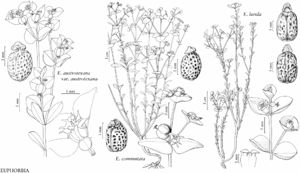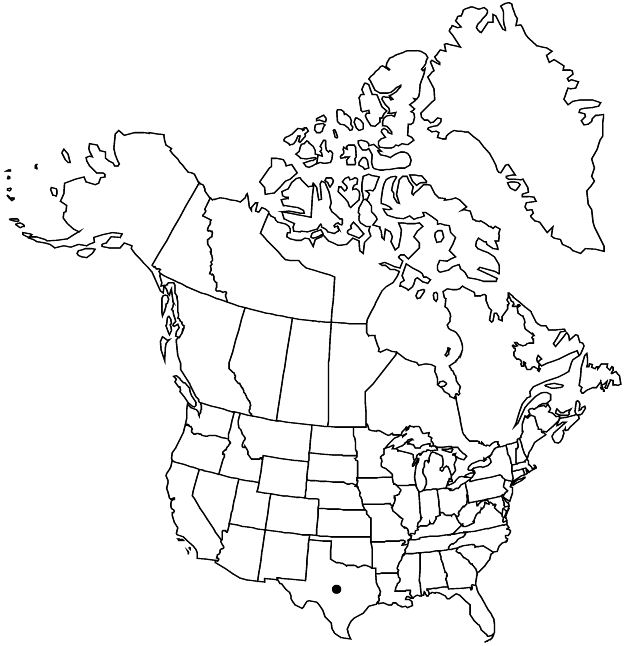Difference between revisions of "Euphorbia austrotexana var. austrotexana"
IllustratedEndemicConservation concern
Treatment appears in FNA Volume 12. Treatment on page 299.
FNA>Volume Importer |
imported>Volume Importer |
||
| (5 intermediate revisions by 2 users not shown) | |||
| Line 1: | Line 1: | ||
{{Treatment/ID | {{Treatment/ID | ||
|accepted_name=Euphorbia austrotexana var. austrotexana | |accepted_name=Euphorbia austrotexana var. austrotexana | ||
| − | |accepted_authority= | + | |accepted_authority= |
|publications= | |publications= | ||
|special_status={{Treatment/ID/Special_status | |special_status={{Treatment/ID/Special_status | ||
|code=F | |code=F | ||
| − | |label= | + | |label=Illustrated |
}}{{Treatment/ID/Special_status | }}{{Treatment/ID/Special_status | ||
|code=E | |code=E | ||
| Line 38: | Line 38: | ||
-->{{#Taxon: | -->{{#Taxon: | ||
name=Euphorbia austrotexana var. austrotexana | name=Euphorbia austrotexana var. austrotexana | ||
| − | + | |authority= | |
| − | |authority= | ||
|rank=variety | |rank=variety | ||
|parent rank=species | |parent rank=species | ||
| Line 52: | Line 51: | ||
|publication title= | |publication title= | ||
|publication year= | |publication year= | ||
| − | |special status= | + | |special status=Illustrated;Endemic;Conservation concern |
| − | |source xml=https:// | + | |source xml=https://bitbucket.org/aafc-mbb/fna-data-curation/src/2e0870ddd59836b60bcf96646a41e87ea5a5943a/coarse_grained_fna_xml/V12/V12_420.xml |
|genus=Euphorbia | |genus=Euphorbia | ||
|subgenus=Euphorbia subg. Esula | |subgenus=Euphorbia subg. Esula | ||
Latest revision as of 19:15, 5 November 2020
Stems 10–22 cm. Leaves: blade linear-oblanceolate, apex rounded. Dichasial bracts reniform-ovate to subdeltate-ovate, base truncate. Seeds 1.6–1.7 × 1.1–1.3 mm, surface with regular concave depressions. 2n = 26.
Phenology: Flowering and fruiting spring.
Habitat: Sandy soils.
Elevation: 200–300 m.
Discussion
Variety austrotexana is restricted to Atascosa, Bexar, and Wilson counties. According to M. H. Mayfield (2013), only five documented localities are known.
Selected References
None.
Lower Taxa
None.

